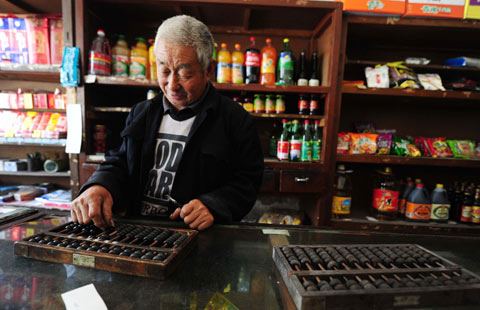Belt and Road media project
By Chen Yingqun (China Daily Europe) Updated: 2016-09-04 09:33International community, initially from 29 nations, formed to jointly produce and trade TV shows, documentaries and films
The Belt and Road Media Community, consisting of 41 media outlets from 29 countries, was launched on Aug 26 in Beijing to strengthen international cooperation in film and television.
Organizers predict the platform will become the world's biggest multimedia cooperation platform.
China Central Television and China International Television Corp proposed during the Arab Festival for Radio and Television in May to build the community as part of China's Belt and Road Initiative strategy. The initiative refers to the Silk Road Economic Belt and the 21st Century Maritime Silk Road initiatives, to link Asia and Europe and other areas through trade and infrastructure, launched by President Xi Jinping in 2013.
Since then, they have invited TV media companies, film and television producers, video websites and social media from countries along the Belt and Road countries to join the community.
Xue Jijun, chairman of China International Television, says cooperation would include aspects such as joint production of film and TV programs such as TV series and shows, documentaries and films, and their international promotion; building a cooperation fund to help support work among community members; award programs for excellent work; and interchanging and broadcasting each other's TV programs of each other for the first time.
He says there would be three phases to the community's development.
"At the beginning, they will mainly exchange TV programs, and then they may start to cooperate with each other to co-produce films and TV programs, and co-produce the commercial operations of channels and slots," he says.
"But in the future, they are supposed to build a whole, cross-regional media industry chain and to strengthen the members' brands and international influence."
The 41 members now include mainstream media from countries such as Britain, France, Italy, Russia, the United States, Malaysia, Japan and South Africa. More media outlets are expected to join later.
Tang Shiding, vice-chairman of China International Television, says the community has already set up a system to exchange programs, and in October it will start operating. Ten TV programs from China, such as the A Bite of China 2, will be broadcast by TV stations and online media in more than 20 countries at that time.
China International Television also has some 3,000 hours of video materials in 23 languages, which could also be an important resource for the community, he says. It has also started to provide a program that uses films and TV programs from China, called China Hour, to many countries such as Vietnam, South Africa and the Czech Republic.
Alexey Voilin, vice-minister of the Ministry of Telecom and Mass Communications of the Russian Federation, says he is very glad to see the launch of the community, in which two Russian media outlets already are participating, with more to come.
He says media cooperation under the Belt and Road Initiative should encompass not only traditional media but also new media.
chenyingqun@chinadaily.com.cn
- Guangzhou's Tianhe CBD: Charting its growth
- China-invested power plant starts construction in Indonesia to resolve electricity shortage
- China's agricultural fair draws record number of foreign traders
- Trump, Clinton products flood the market ahead of presidential race
- China hard landing, yuan risks recede: Fitch
- Hyundai Motor's Q3 profit tumbles 29%
- Chinese construction giant to boost manpower development in Africa
- China's food prices dip last week


















